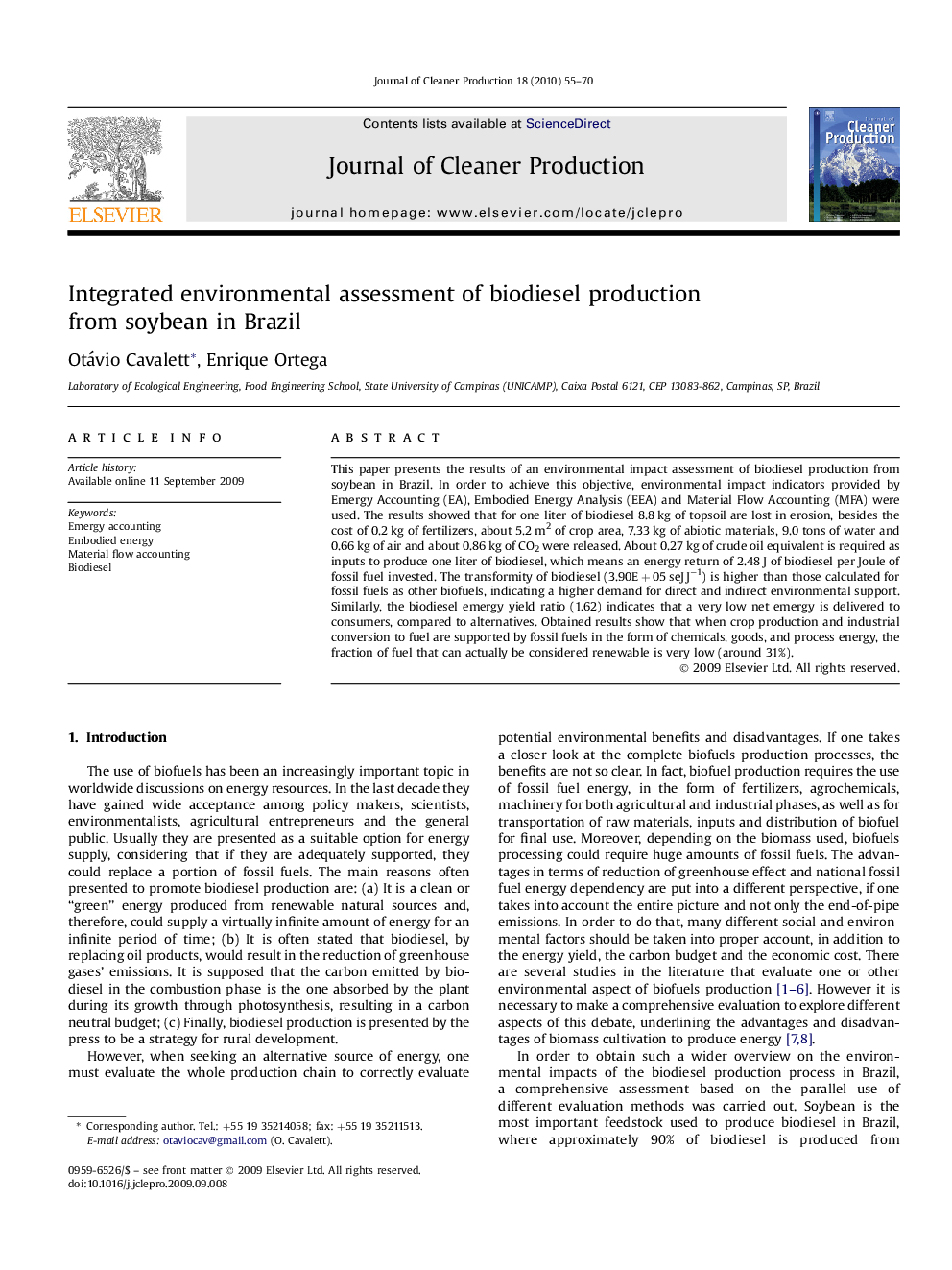| Article ID | Journal | Published Year | Pages | File Type |
|---|---|---|---|---|
| 1746467 | Journal of Cleaner Production | 2010 | 16 Pages |
This paper presents the results of an environmental impact assessment of biodiesel production from soybean in Brazil. In order to achieve this objective, environmental impact indicators provided by Emergy Accounting (EA), Embodied Energy Analysis (EEA) and Material Flow Accounting (MFA) were used. The results showed that for one liter of biodiesel 8.8 kg of topsoil are lost in erosion, besides the cost of 0.2 kg of fertilizers, about 5.2 m2 of crop area, 7.33 kg of abiotic materials, 9.0 tons of water and 0.66 kg of air and about 0.86 kg of CO2 were released. About 0.27 kg of crude oil equivalent is required as inputs to produce one liter of biodiesel, which means an energy return of 2.48 J of biodiesel per Joule of fossil fuel invested. The transformity of biodiesel (3.90E + 05 seJ J−1) is higher than those calculated for fossil fuels as other biofuels, indicating a higher demand for direct and indirect environmental support. Similarly, the biodiesel emergy yield ratio (1.62) indicates that a very low net emergy is delivered to consumers, compared to alternatives. Obtained results show that when crop production and industrial conversion to fuel are supported by fossil fuels in the form of chemicals, goods, and process energy, the fraction of fuel that can actually be considered renewable is very low (around 31%).
